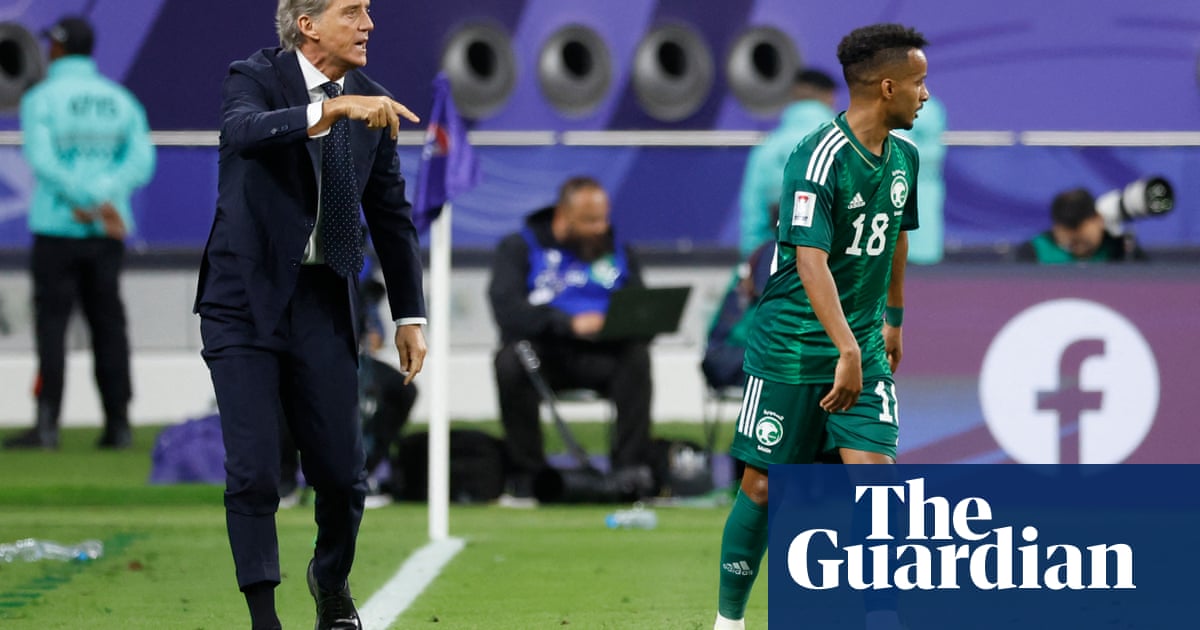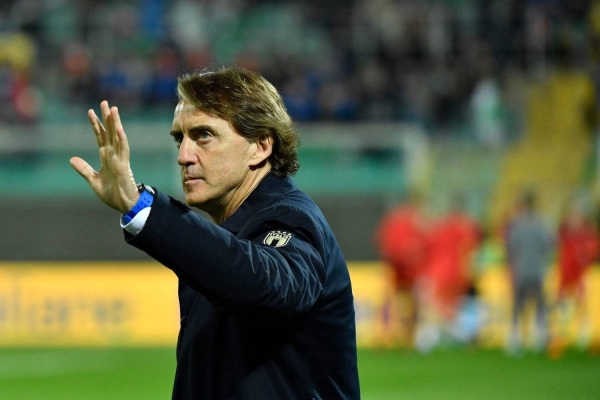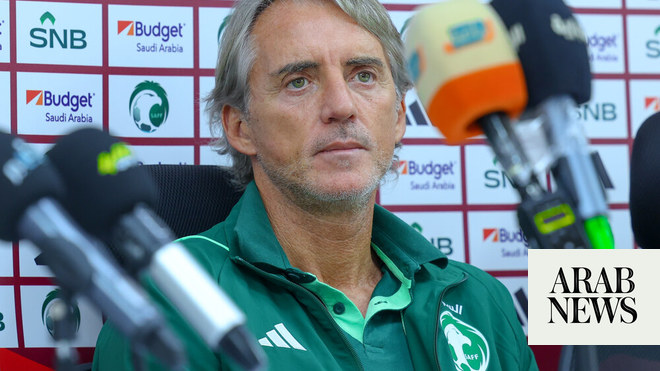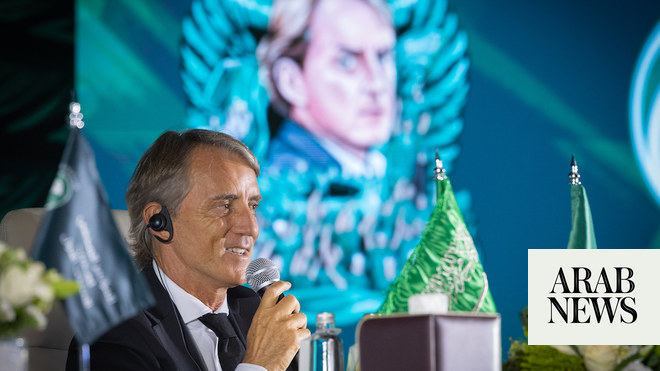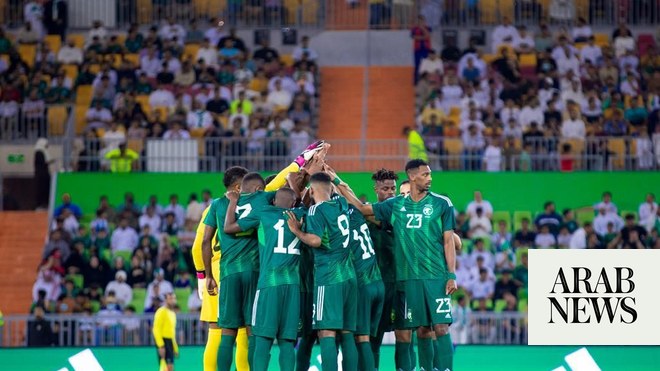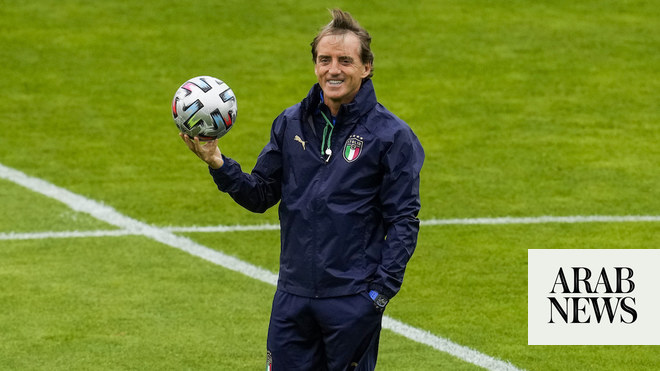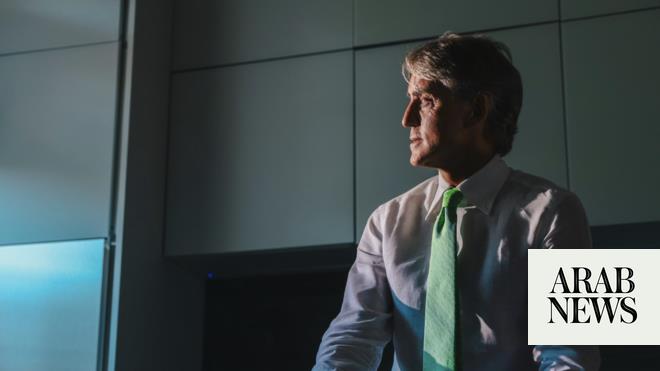
Just before full time in Saudi Arabia’s 0-0 draw with Bahrain in a vital 2026 World Cup qualifier earlier this month, fans in Jeddah started to hold up phones with Roberto Mancini’s face on the screen with “out” written below. There was lengthier communication after the match as the Italian exchanged gestures with supporters behind the dugout and, as he exited the pitch at the King Abdullah Sports City, it was pretty clear that Mancini would not be coming back.
The 59 year-old was seemingly an upgrade on his predecessor, Hervé Renard. There was the same European sophistication and suavity but Mancini had won Serie A and the Premier League and arrived in Riyadh in August 2023 two years after leading Italy to European Championship glory. The job description was not solely about taking the Green Falcons to the knockout stages of the World Cup – success at the 2027 Asian Cup was just as important. Saudi Arabia is hosting the tournament for the first time and wants a first win since 1996 as the country gears up for the 2034 World Cup.
Mancini’s first challenge was the last Asian Cup, held in Qatar in January. It started with him leaving out three senior members of the squad, claiming in a press conference that Nawaf Al-Aqidi, Sultan Al-Ghannam and Salman Al-Faraj – captain of the 2022 World Cup team – had wanted to pick and choose their games. The charges were strongly denied. Recently Mancini said this was all water under the bridge and anyone could be selected, but feathers had definitely been ruffled.
Had Saudi Arabia gone all the way in Qatar then it may have been different, but just as the start was controversial, so was the end. In a big second-round clash with a struggling South Korea, the Saudis were in control and a goal ahead, but late substitutions and tactical changes allowed South Korea back in the game and there came a last-gasp equaliser. That wasn’t the problem, however. Before Hwang Hee-chan had scored the final penalty in the resulting shootout that sent the Koreans through and Saudi Arabia home, the losing coach decided to have an early exit of his own, disappearing down the tunnel without even a glance back at the remaining action. “The coach’s exit is completely unacceptable, and we will discuss with him why this happened,” Yasser al-Misehal, the president of the Saudi Arabia Football Federation, said after the game. “He has the right to explain his point of view, and then we will decide the appropriate action.”
Mancini apologised and, as expected, the second round of 2026 World Cup qualification presented few problems, though a home defeat by Jordan in June meant Saudi Arabia were relegated to pot three in the draw for the third round and, in turn, placed in Group C, along with Japan and Australia, certainly the toughest of the three groups.
The third round kicked off in September. By this time there were rumours the players did not have the same kind of warm relationship with Mancini as they had enjoyed with Renard. The former Italy midfielder also annoyed pundits – and there is no shortage of former players and ex-club presidents ready to weigh in with their opinions – with his repeated complaints about the minutes his players were getting at their clubs. He had a point, especially when it came to strikers, yet even with this issue Saudi Arabia should have been able to score more than one goal in home games against Indonesia and Bahrain.
The 1-1 draw with Indonesia in September was a surprise but it would have been all three points had Salem Al-Dawsari not seen a late penalty saved. Then came a 2-1 win in China, both goals coming from Hassan Kadesh headers, with the defender having never previously scored for his country. The triumph also displayed fight on Saudi Arabia’s part given they fell behind to an early goal and suffered an early red card. The subsequent home loss to Japan wasn’t a surprise – the visitors are the best team in Asia right now – but it was a flat performance.
Worse was the 0-0 draw with Bahrain, a team the Saudis usually beat, on 15 October. There were few ideas going forward but, again, had Al-Dawsari not seen a penalty saved it could have been very different. Mancini was visibly angry with Al-Dawsari but given the 2022 Asian Player of the Year had previously missed four out of eight spot kicks for the national team, the head coach should probably have stepped in earlier. “If we miss penalties every game it’s a big problem,” said Mancini after the game. “It is easy to blame the coach for a loss or a draw, but there is a responsibility on the players to perform and perform at a stronger level.”
Had Al-Dawsari’s penalties against Indonesia and Bahrain been converted, Saudi Arabia would have nine points from four games, instead of five, putting them one behind Japan and level with Australia before a trip to Melbourne. It is not really a surprise that Mancini will not be making the journey. Straight after the Bahrain draw, Al-Misehal said result was not good enough and the federation subsequently met the next day. From then it was all about agreeing a severance deal with one of the world’s most highly-remunerated coaches.
Mancini walks away from Saudi Arabia considerably richer than when he arrived 14 months earlier, but few would say that the national team is any better off.




